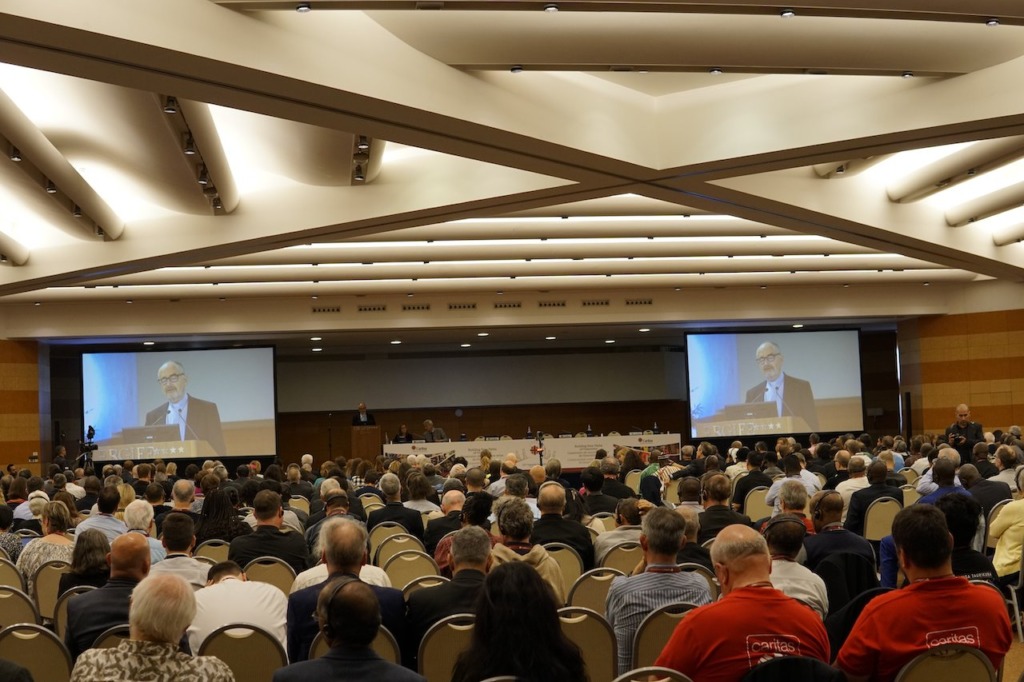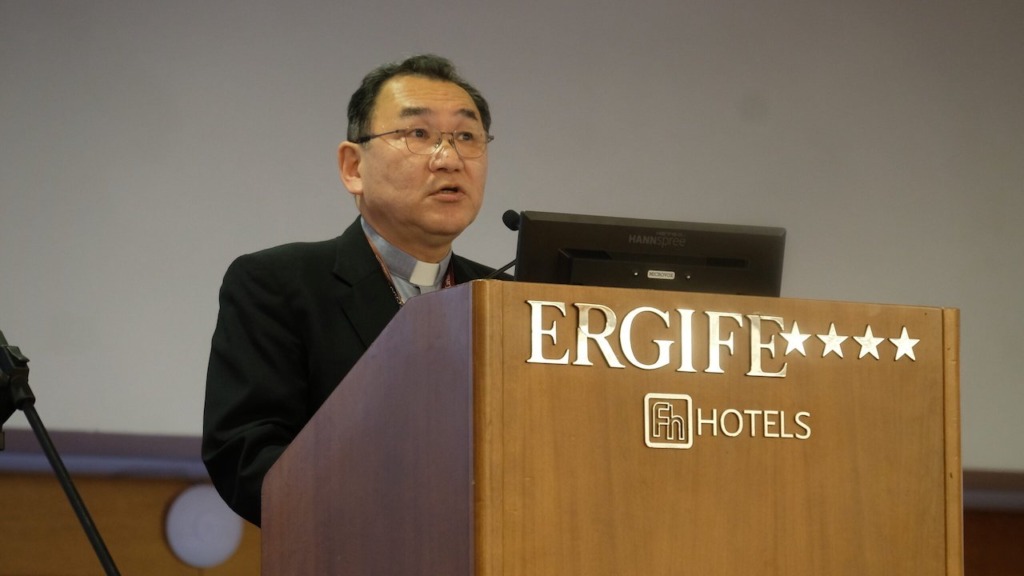ROME (CNS) – Caritas Internationalis, the global Catholic charity network, elected Archbishop Tarcisius Isao Kikuchi of Tokyo to be its new president following a Vatican-mandated overhaul of its leadership.
After a transition period, which began after Pope Francis removed Caritas’ president and suspended other top leadership positions in November 2022, some 400 delegates representing national and local Caritas organizations gathered in Rome for the organization’s general assembly May 11-16.
The delegates elected Archbishop Kikuchi May 13, and were expected to elect a new secretary-general and fill other leadership positions.

Opening the general assembly May 12, Cardinal Michael Czerny, prefect of the Dicastery for Promoting Integral Human Development which has some oversight responsibility of Caritas Internationalis, said that the Vatican’s decision to replace Caritas’ leadership with a temporary administrator was “not a denunciation” of the organization but a necessary action in response to “clear and real dangers” uncovered in an investigation into Caritas’ work structures.
Archbishop Kikuchi, a Divine Word Missionary, was a parish priest in Ghana for eight years before beginning his work with Caritas in 1995 as a volunteer in a refugee camp in the former Zaire, known today as Congo. He was executive director of Caritas Japan from 1999-2004 and its president from 2007-2022. The archbishop is currently president of the Catholic Bishop’s Conference of Japan and secretary-general of the Federation of Asian Bishops’ Conferences.
“This is the real mission of Caritas: to help people know they are not forgotten,” he told Vatican News following his election. “What we do is not only provide food or materials or any kind of assistance, but rather we want to be witnesses of the love of God to show people that this is how God loves all people.”
As a former Caritas volunteer and now its president, Archbishop Kikuchi said that Caritas “does not only include those who are in the top administration levels of the top officers.”
“From the grassroots, all the volunteers, they are all Caritas,” he said.

That grassroots connection allows Caritas organizations to be more than just a source of physical aid to people in need, said Tetiana Stanwnychy, president of Caritas Ukraine.
“In the international humanitarian community there’s all this talk about localization, and we are localization,” she told Catholic News Service May 12.
“We focus on the quality of partnerships, on the relationship between Caritas organizations, we build each other up, share programs and build common standards,” she said. “We do things professionally and effectively but at the same time have this Caritas identity that is ready to hold someone’s hand and offer kindness.”
Stawnychy noted how since Russia’s full-scale invasion of Ukraine in February 2022 many Caritas Ukraine volunteers are internally displaced persons who themselves relied on Caritas aid to get by when they fled their homes due to the war. Engaging support from local communities, she said, is key to people’s healing and restoring their trust in one another after experiencing the trauma associated with war.
In addition to vast humanitarian aid projects spanning across 40 centers and 500 parishes, Stawnychy said Caritas Ukraine now operates “social cohesion” initiatives meant to bring people from different segments of society to dialogue with one another and work through their trauma.
“When you’ve had this massive upheaval and massive trauma, you need some facilitation in reestablishing trust in neighbors, especially if they’re new neighbors,” she told CNS.

Sean Callahan, president of Caritas North America and CEO of Catholic Relief Services, told CNS that by partnering with local churches, Caritas can be on the ground to directly address issues such as migration rather than just deal with its consequences.
“You can’t solve the migration crisis by just building walls in the United States, so our organization is one to help people not have to migrate,” he told CNS May 12. “We’ll help people migrate if they have to, but we would rather say, ‘What can we do to make you stay where you want to stay?’”
“We have these relationships, we have trust and a common understanding,” Callahan said, “when we go into a country it’s not about going in and searching for a partner, we’ve got our partner. We’re invited in by the local church and meet with them and discuss how to operate.”
Caritas Internationalis is the umbrella organization for 162 official Catholic charities operating in 200 countries and territories around the world. Expanded into an international network by St. Paul VI in 1954, Caritas is now the second largest international humanitarian aid agency after International Red Cross.

